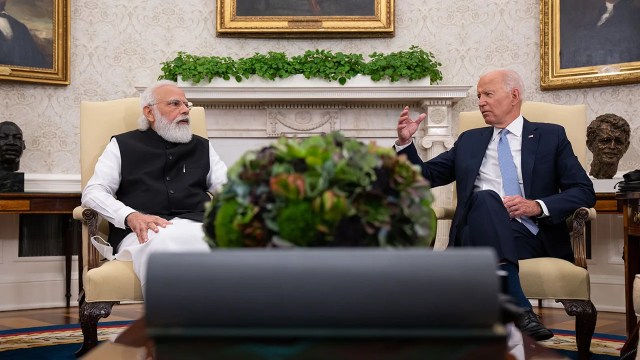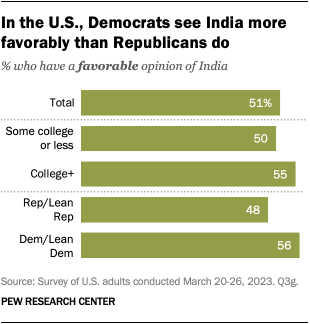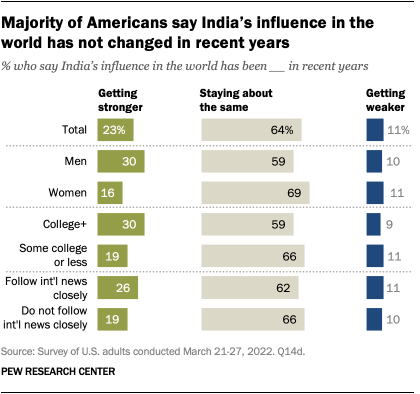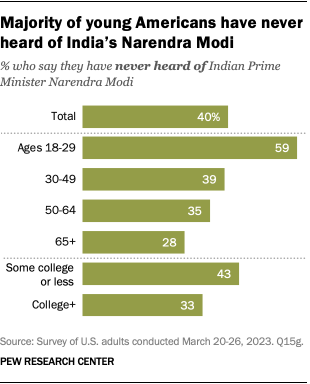
As Indian Prime Minister Narendra Modi visits the United States and addresses U.S. Congress this week, Americans generally regard India favorably. But many have never heard of Modi, according to a Pew Research Center survey conducted March 20-26, 2023. Those who have heard of the Indian leader tend to lack confidence in him.
Ahead of Indian Prime Minister Narendra Modi’s visit to the United States in June 2023, Pew Research Center analyzed Americans’ knowledge and views of India and its leader. For this analysis, we surveyed 3,576 U.S. adults from from March 20 to March 26, 2023. Everyone who took part in this survey is a member of the Center’s American Trends Panel (ATP), an online survey panel that is recruited through national, random sampling of residential addresses. This way nearly all U.S. adults have a chance of selection. The survey is weighted to be representative of the U.S. adult population by gender, race, ethnicity, partisan affiliation, education and other categories. Read more about the ATP’s methodology.
Here are the questions used for this analysis, along with responses, and its methodology.

About half of U.S. adults (51%) have a favorable view of India, while a somewhat smaller share (44%) have an unfavorable view.
Attitudes vary slightly by educational attainment: 55% of Americans with a bachelor’s degree or higher view India positively, while 50% of those with some college or less education say the same.
Democrats and Democratic-leaning independents are also somewhat more likely than their Republican and Republican-leaning counterparts to see India favorably (56% vs. 48%).

Looking at India’s position globally, most U.S. adults (64%) believe the country’s influence in the world has stayed about the same in recent years. Another 23% say India’s influence has gotten stronger, while 11% say its influence has weakened.
Men are more likely than women to say India’s influence has been getting stronger, as are those with a bachelor’s degree or more education when compared with those without a college degree. (Men in the U.S. were also more likely than women to answer the question.) U.S. adults who closely follow international news are also more likely than those who follow it less closely to see India as a growing power.
When it comes to India’s prime minister, a substantial share in the U.S. (40%) say they have never heard of him. Americans under 30 are particularly likely to say they do not know who Modi is (59%). In comparison, 28% of U.S. adults 65 and older say the same. Adults with less education are also more likely than those with higher levels of education to have never heard of Modi.

For those who have heard of Modi, the prevailing sentiment is negative: 37% have little or no confidence in his ability to do the right thing regarding world affairs, compared with 21% who are confident in him.
Americans are also largely unfamiliar with the Indian flag, according to the results of a 2022 Center quiz that gauged Americans’ knowledge of international affairs. When presented with a picture of India’s flag, only 41% of Americans correctly identified the country it represents.
Americans with a bachelor’s degree or higher were more likely than those with less education to correctly attribute the flag to India, as were younger Americans when compared with their older counterparts. Liberal Democrats were also 16 percentage points more likely than conservative Republicans to correctly identify the Indian flag.
Note: Here are the questions used for this analysis, along with responses, and its methodology.
